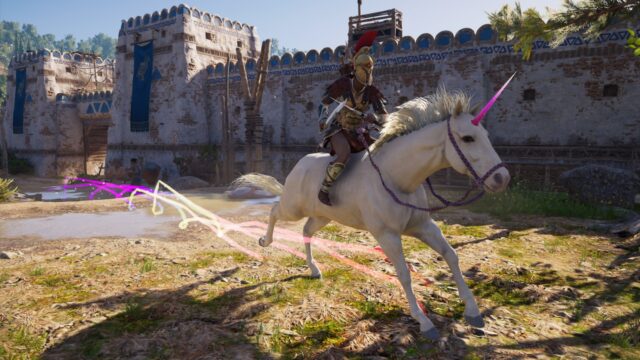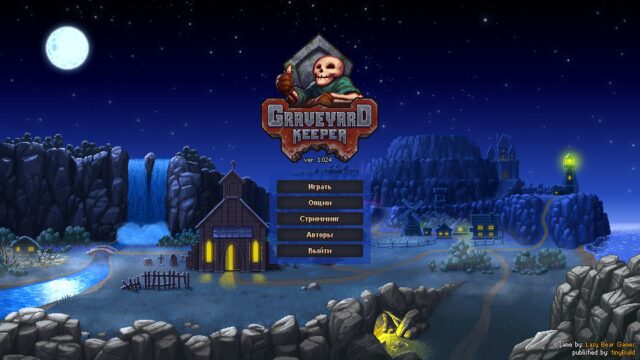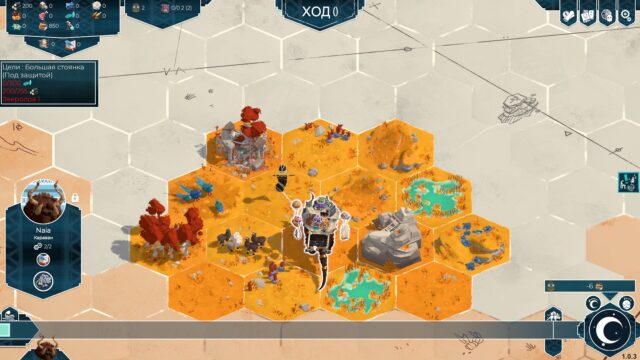Legends of Eisenwald Review
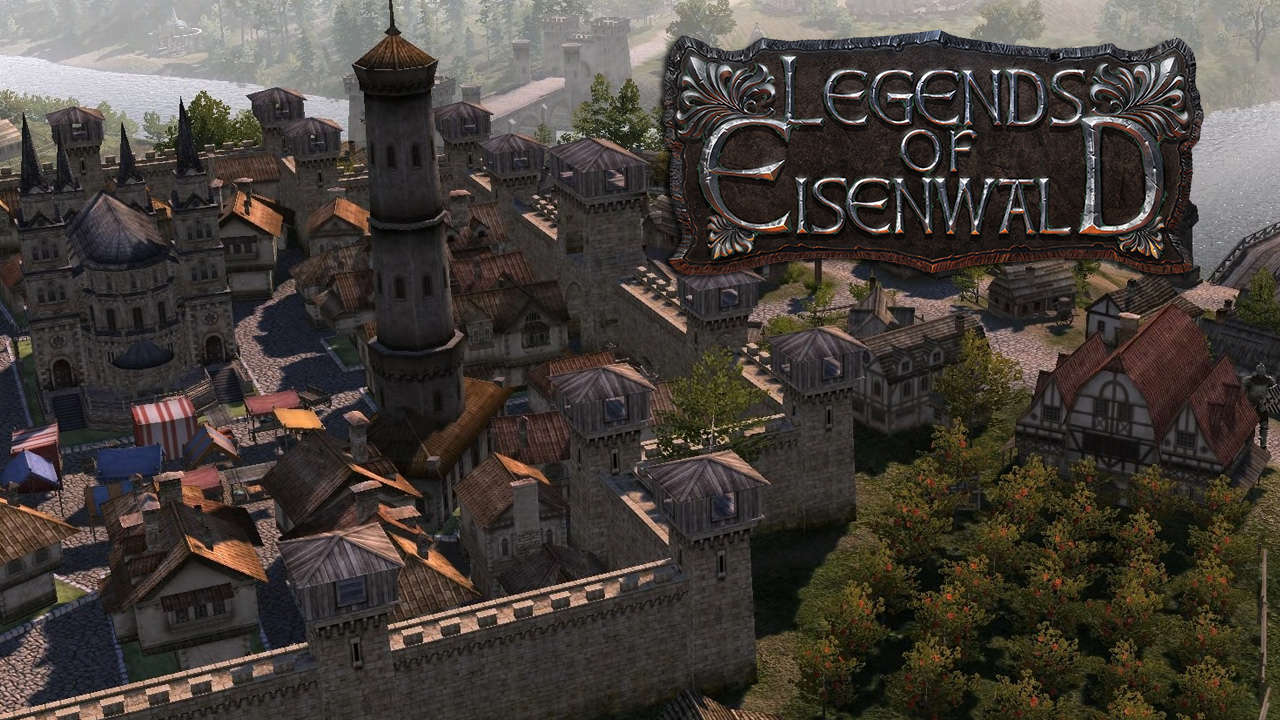
Our gaming industry can be criticized for everything it’s worth, it’s not profitable to compare it to the “big brothers” and not consider it as such, but one thing you can’t take away from post-Soviet projects – they are ridiculously cozy. You know, they emit such a practically homely warmth, for the sake of which sometimes you feel like starting a game for half an hour, only to ultimately witness the sunrise with it and, without regretting anything, go to work in the company of hefty bags under your eyes. The overwhelming majority of foreign entertainments cannot compare to “Space Rangers” rising from the ashes. “Cossacks”, either ancient “Demiurges” or, on the contrary, a brand new Legends of Eisenwald from Belarusian. Aterdux Entertainment Despite the pseudo-historical setting and gloomy story about religious-political disputes, “Eisenwald” does not have its own little George Martin intentionally thickening the clouds. It is only in the center of the picture of betrayal and family tragedies, while beyond them stretches a completely “cozy” adventure with fabulous artifacts, begging for help from commoners, legends of mighty heroes, and the hideouts of bandits. The role of the closest reference point is persistently claimed by King’s Bounty of 2007, with the only caveat that there is not so much fairy tale in Medieval Germany – but there are still plenty of side quests. That is why it is better to rush not to another fortress for plot disputes, but to a zone of increased comfort – a roadside tavern, where, by spreading your ears, you can pick up gossip, among which there will no doubt be something interesting. You know the rest: a trivial assignment will inevitably turn into a huge quest where you will have to run a lot, talk, possibly fight, and, most importantly, make choices.
The game often indulges in forks, presenting itself as a true RPG, but it does not impose as much responsibility as it may seem. Although a couple of times you will have to make decisions that affect the subsequent set of additional quests and the course of the plot, the rest of the time the only difference will be which of the characters will give you the promised reward. And the alternatives are usually extremely narrow (“right” and “very right”), which means that there can be no fundamental differences in gameplay in principle. Nevertheless, the illusion of freedom is sometimes successfully created.
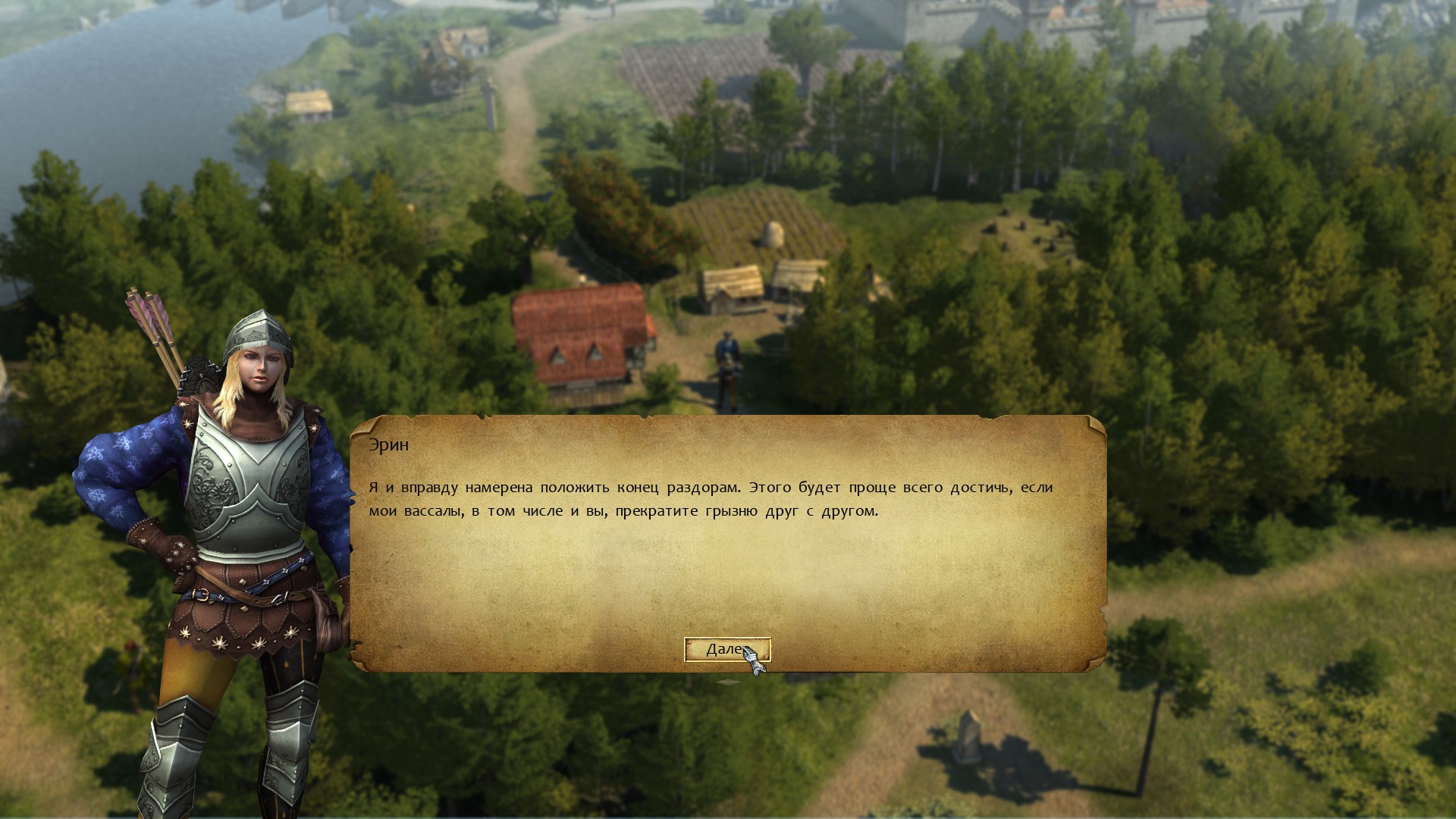
The language in game texts is exceptionally beautiful and vibrant, however, in some places, proofreading wouldn’t hurt.
The process itself is more or less within the framework of the familiar. The main part of the gameplay consists of real-time travels on the global map, where you can capture fortresses and villages, trade, hire soldiers, interact with NPCs wandering between settlements – and, in principle, everything. The controlled lands do not require management, buildings cannot be developed, and the only resource is gold, which is replenished automatically. In this context, it is even a plus, as the need to manage possessions would distract from the narrative.
The only complaint is perhaps the simulation of the game world’s life. From the outside, the activity of artificial intelligence looks very good, but it should learn to react somehow to the presence of the hero within the line of sight. Some key characters clearly overdo it, pretending to be busy, and they run through the forests and fields so quickly that completing quests requires sprinting.
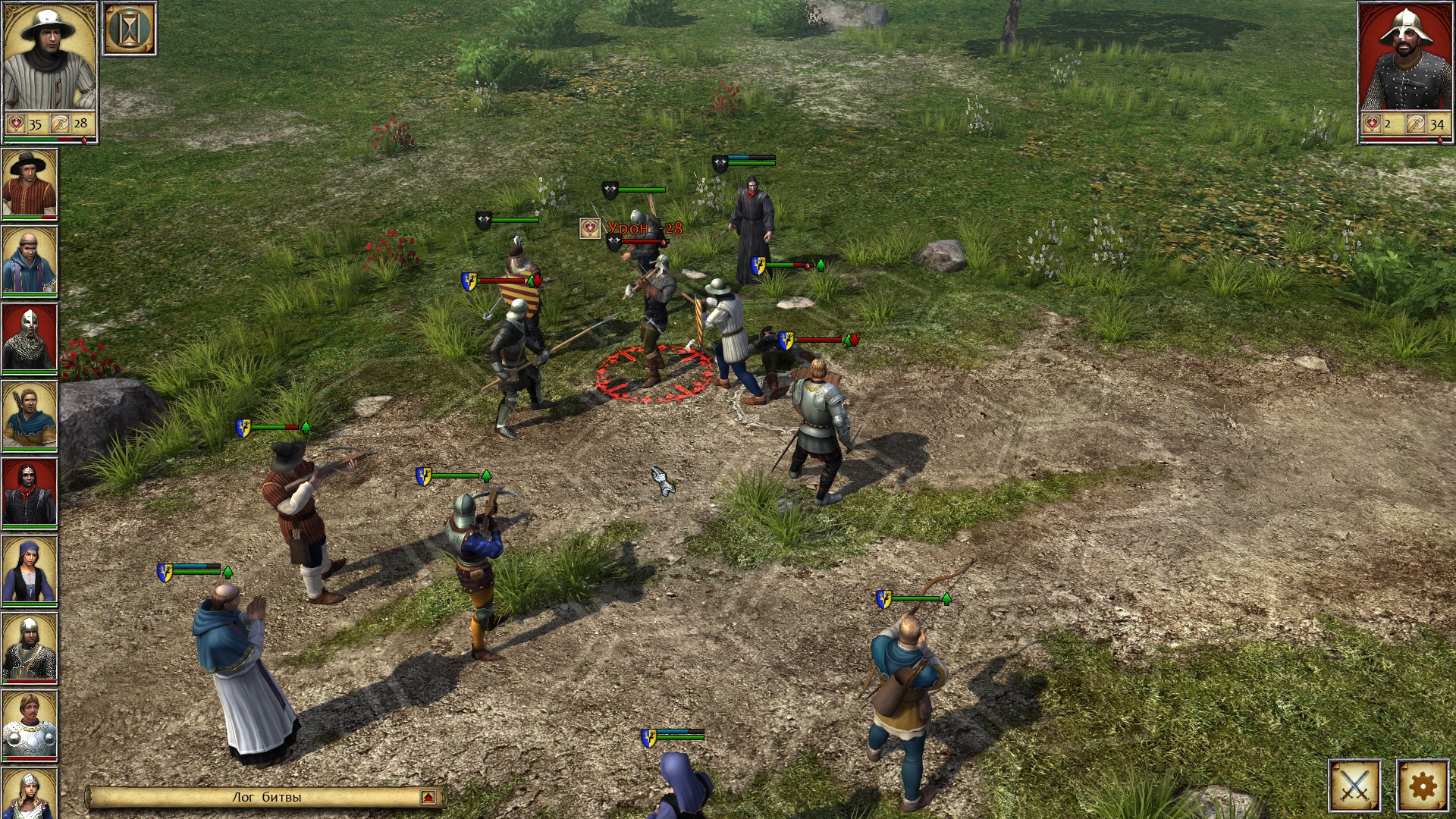
Inevitable clashes with enemies – a much more controversial moment. Legends of Eisenwald confines traditional turn-based combat with a hexagonal field within its own framework, or rather, in one critical rule: an active unit can and should attack only the nearest enemy. That is, simply going and hitting “that scoundrel from the back rows” is no longer possible, just as skipping a turn (although you can sit out until the end of the cycle) – a taboo that crosses out long-standing tactical techniques and throws off the regulars of the Heroes of Might & Magic series.
On the one hand, this is really perceived in a new way. The confusion disappears after a couple of attempts, interest arises, along with which the benefits of building squads, spells, and characters with high initiative are discovered. Battles acquire something in common with checkers, when you need to make sure that an important combat unit is not threatened.
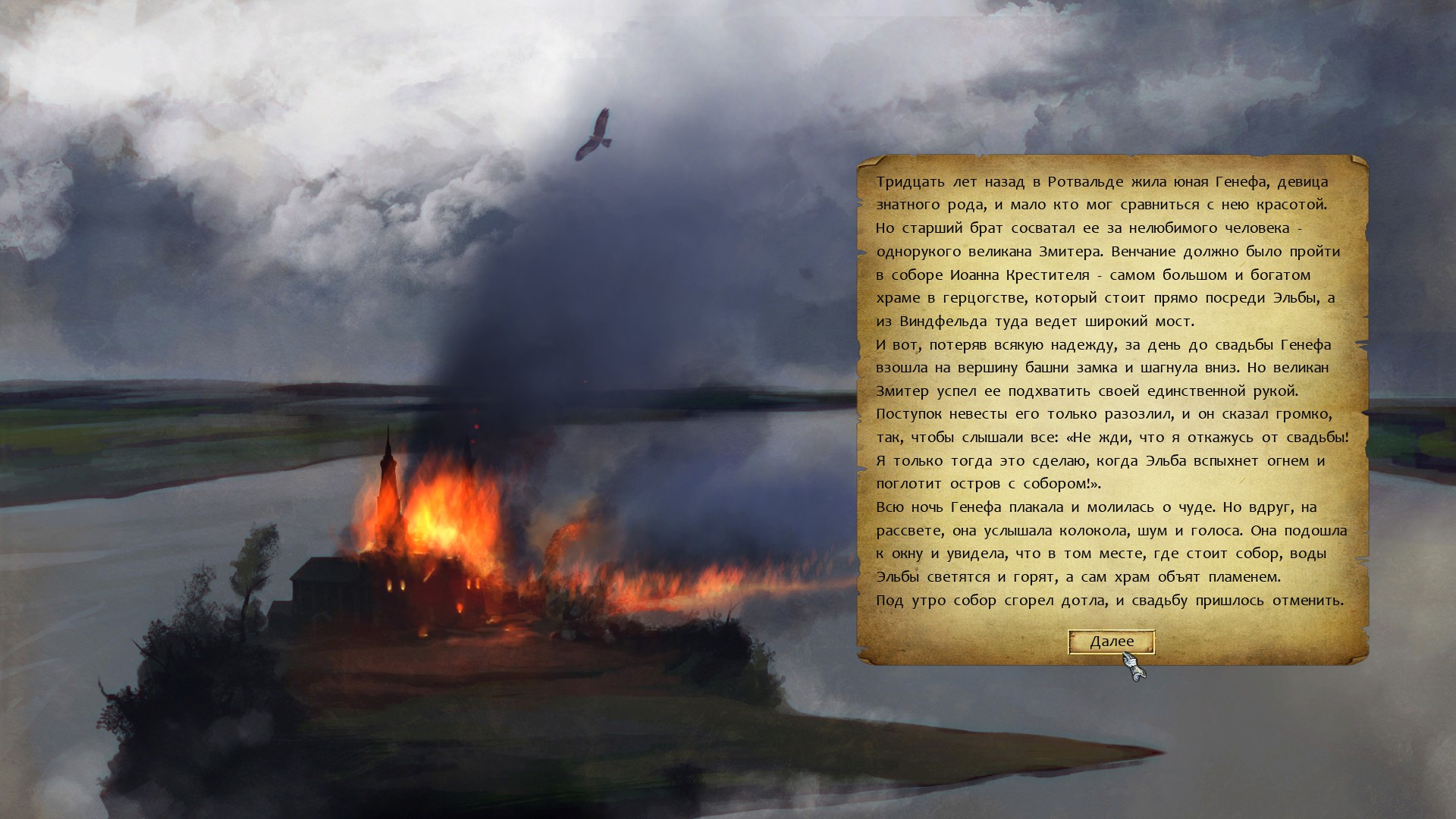
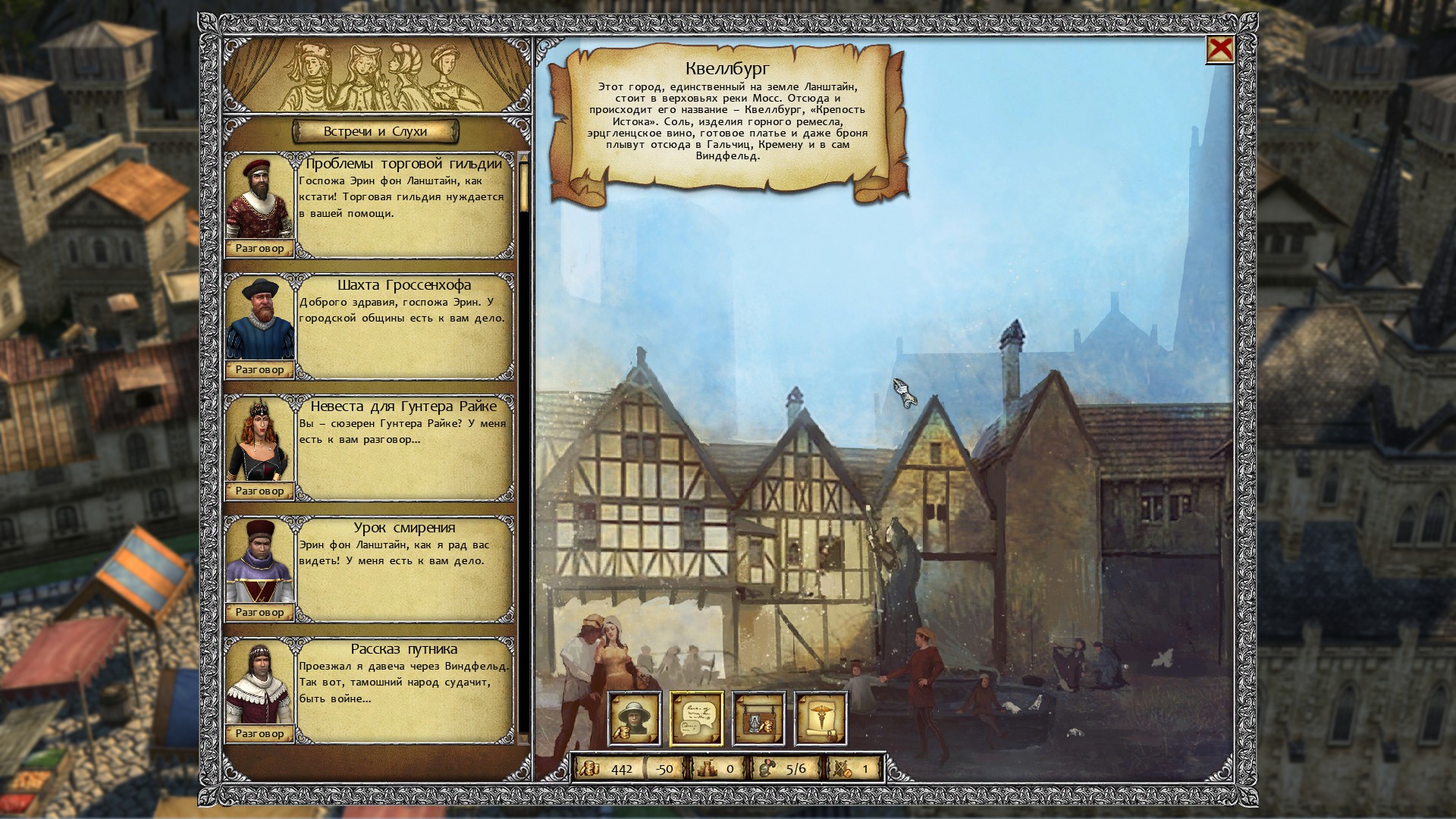
Wow, so many people in need!
On the other hand, such an innovation greatly limits the variety of possible tactics, and battles become monotonous and predictable without enough room for maneuvers. Detailed squad customization, leveling up, and equipping units save some time, but sooner or later the scenarios will still start to repeat. Of course, all of this unfolds on a much smaller scale compared to HoMM, and therefore it doesn’t hit as hard in terms of sensations, but still, a warning bell has sounded.
A little bit of technical clumsiness of the game slightly tarnishes the overall positive impression. The absence of an alpha channel on inconspicuous NPC textures, inappropriate fonts, text blocks that go beyond the designated windows, flickering interface elements when minimized – seemingly small things, but they affect the atmosphere, successfully maintained by the charming graphics and excellent soundtrack. Fortunately, nothing completely supernatural and beyond the reach of patches has been discovered.
Legends of Eisenwald deserves respect at least for not becoming a banal copy of King’s Bounty or “Heroes,” turning into an independent and original interpretation of what was invented before. The slight experimental clumsiness may inspire distrust, but believe me – it’s worth it.
Share
Discuss
More Reviews


